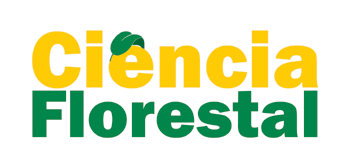ABSTRACT
The objective of the present work was to obtain aseptic cultures in order to establish a micropropagation protocol of Aspidosperma polyneuron from juvenile explants. Apical shoots from twoyear-old seedlings were collected in a greenhouse and disinfected with sodium hypochlorite (0.125 or 0.25%) or mercuric chloride (0.025, 0.05 or 0.1%), during 5 or 10 minutes and at different seasons of the year. Necrosis, bacterial and fungal contamination percentages and survival rates were evaluated after three weeks. It was showed that NaOCl 0.25% solution, during 10 minutes resulted in 70% of survival and disinfection of apical shoots, independent of the season of the year (summer or autumn). HgCl 2 was more efficient than NaOCl in the disinfection of apical shoots, therefore 0.05% HgCl 2, during 10 minutes was recommended (84.10% of survival). Aseptic cultures were established in all seasons of the year, but better results were obtained in spring and summer.
Key words:
peroba; micropropagation; juvenile explant; disinfection
